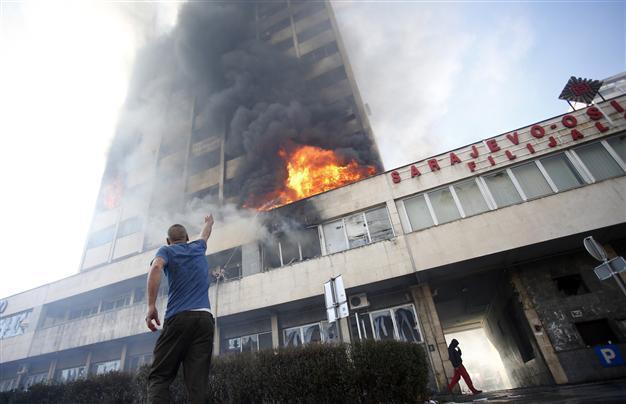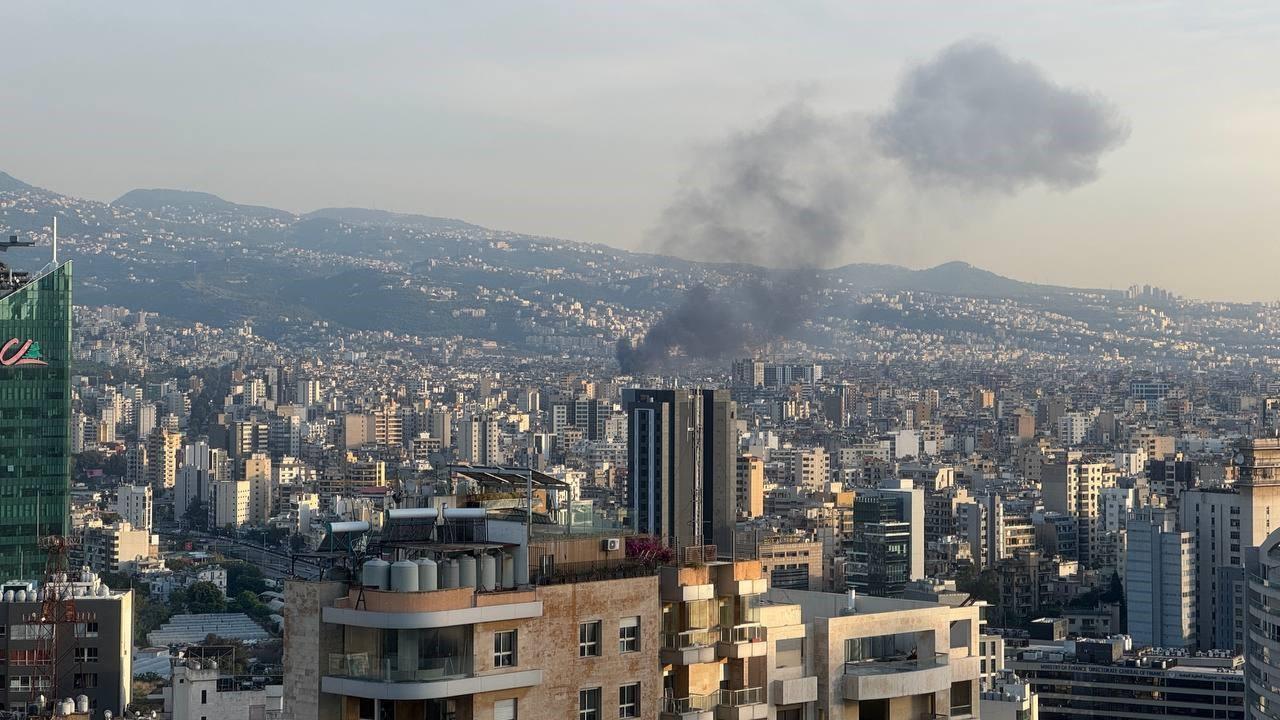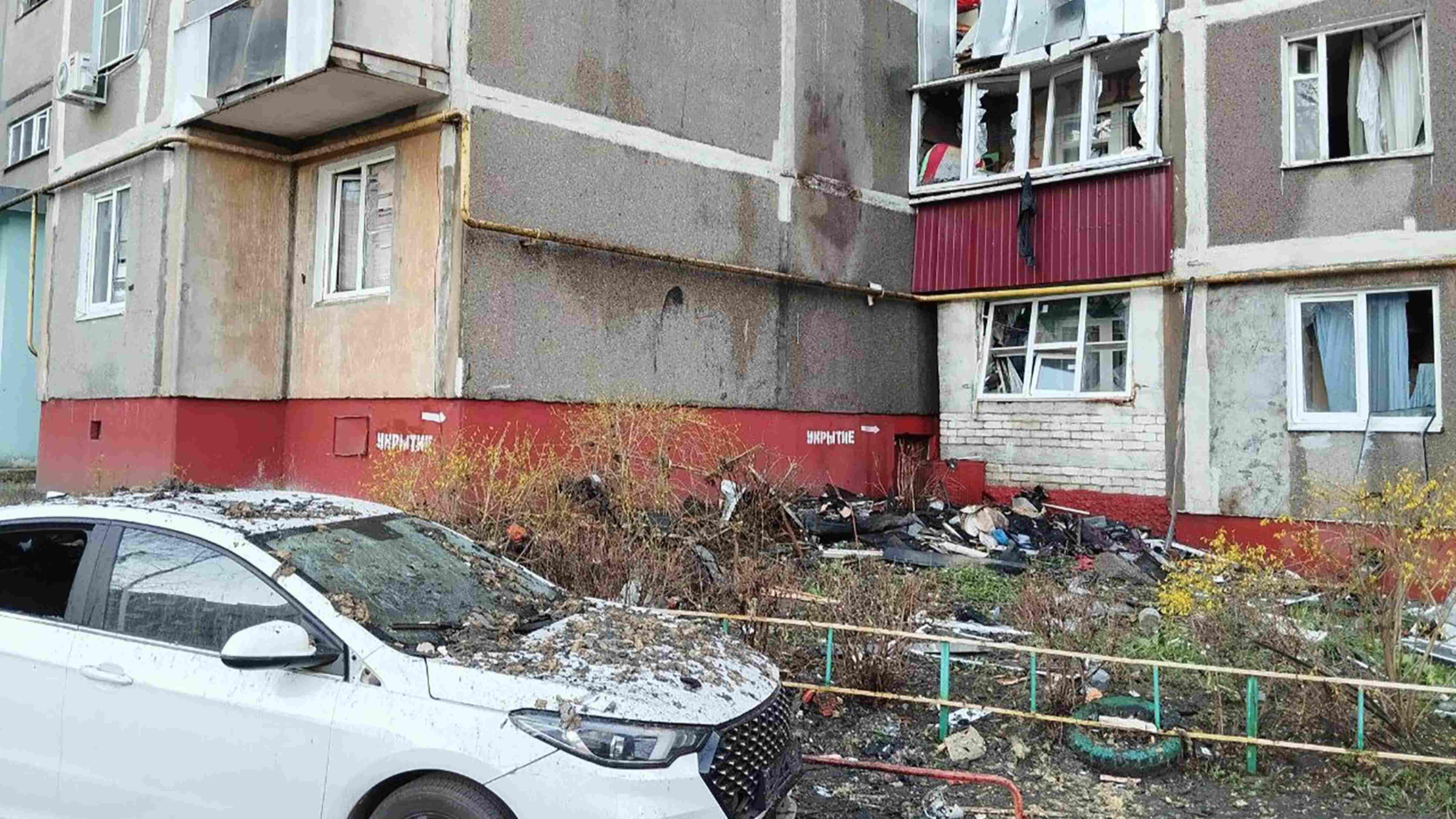Bosnian protestors storm government buildingsa in Tuzla
TUZLA - Agence France-Presse

People attempt to put out a blaze at a government building in Tuzla, on Feb 7. AFP photo
Protesters stormed government buildings in Bosnia on Feb. 7, setting them alight and smashing up furniture, as anger over the dire state of the economy boiled over.With unemployment at 44 percent and one in five people living below the poverty line, Bosnians have taken to the streets to protest the authorities' failure to address the economic situation.
As anger spiralled on Feb. 7 - the third day of at times violent protests - demonstrators set fire to a government building in the capital Sarajevo and another in the northeastern city of Tuzla.
In Tuzla, thousands of protesters cheered as 100 young men wearing hoods stormed a local administrative building, destroying furniture and throwing televisions out of the windows.
Shortly afterwards, flames and thick smoke could be seen billowing from the first floor windows.
In Sarajevo, protestors smashed windows and set fire to security posts outside a government building.
Riot police surrounded the building but were unable to gain access, with demonstrators also blocking two fire engines from reaching the scene.
With demonstrations planned in more than 20 towns and thousands of protesters on the streets of Tusla and Sarajevo on Friday, the protests mark the largest outbreak of public anger in the Balkan country of 3.8 million people since the end of the 1992-1995 war.
The protestors are demanding the resignation of local and regional officials who they blame for two decades of political stalemate that has left the economy in dire straits.
"People protest because they are hungry, because they don't have jobs. We demand the government resign," Nihad Karac, a construction worker in his 40s, told AFP.
"I am employed, but my salary is 250 euros per month." Most protesters blamed politicians for the lack of economic growth in the country.
Nedim Seferovic, who is unemployed, said he had been forced to rely on food handouts for the past five years.
"I would like to see them (politicians) live that way. We want an honest government," said the 28-year-old, decrying politicians' high salaries.
The protests started on in Tuzla, once one of the main industrial hubs in the former Yugoslav republic.
They followed a call by workers who accused the authorities of fraudulently privatising a number of factories once owned by the state. They say salaries have been unpaid for months.
Sakib Kopic, one of the workers' representatives, said the protests were a "the people's answer" to the government's failure to address the ongoing economic decline.
More than 130 people were injured in clashes between police and protesters in the city on Thursday, and on Feb. 7 the city's schools remained shut for fear of further violence.
"This is the shout of rage, hunger and hopelessness about the future that has accumulated for years since the conflict and is exploding right now," local newspaper Dnevni Avaz said in an editorial.
Beset by endemic government corruption, Bosnia's 3.8 million citizens are among the poorest in Europe, with an average monthly salary of 420 euros ($570).
More than 44 percent of the working population if unemployed, according to the official Agency for Statistics, although the Central Bank puts the figure at 27.5 percent, with at least 20 percent of workers estimated to be engaged in the so-called grey economy.
"More and more people are living in misery and poverty. They are hungry," said political analyst Vahid Sehic, chairman of the Forum of Citizens of Tuzla.
"People have lost hope and do not believe that the situation will improve, so their only tool is protest."
















